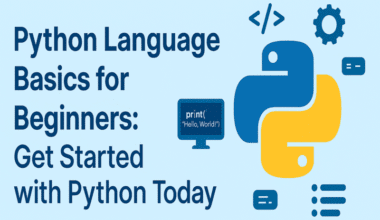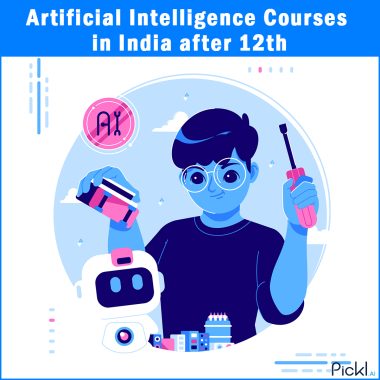Summary: New to coding? Python is your gateway! This guide unveils the fundamentals, equipping you to code like a pro. Explore Python’s potential in web development, data science, and more. Let’s start coding!
Introduction
“The best way to predict the future is to invent it.” – Alan Kay.
This quote perfectly embodies the spirit of learning to code – you’re not just acquiring a skill, you’re unlocking the potential to create and invent! This beginner’s guide is your launchpad into the exciting world of Python programming.
Even if you’ve never written a single line of code before, this comprehensive guide will equip you with the knowledge and resources to embark on your coding journey with confidence. We’ll break down complex concepts into easy-to-understand steps, introduce you to essential tools, and provide valuable resources to fuel your learning adventure.
No prior experience is necessary, just a willingness to explore and a dash of curiosity! So, get ready to unleash your inner coder and conquer the Python peak!
Why Python? The Alluring Snake in the Programming Jungle
Python, unlike its more cryptic cousins like C++ or Java, boasts a clear and concise syntax that reads almost like natural language. This makes it remarkably easier to grasp for beginners, allowing you to focus on core programming concepts without getting bogged down in complex syntax rules. Here are just a few reasons why Python should be your first programming language:
- Easy to Learn: Python’s readability makes it a breeze to pick up, even for those with no prior programming experience.
- Versatile Applications: From web development and data science to machine learning and automation, Python’s reach extends across diverse fields.
- Large and Supportive Community: With a vast and active community of Pythonistas (Python enthusiasts), you’ll never be alone on your coding journey. Countless resources, tutorials, and forums are readily available to assist you.
- Abundant Libraries: Python boasts a rich ecosystem of libraries, pre-written code modules that offer functionalities for various tasks, saving you time and effort.
Preparing for Interviews: Here is the Quick Guide on Python Interview Questions and Answers.
Equipping Yourself for the Climb: Setting Up Your Python Environment
Before blasting off into the Python coding universe, we need to prep our launchpad! We’ll guide you through installing Python itself, then explore code editors and IDEs – these are your coding spaces, offering features like syntax highlighting and debugging tools to make your coding journey smoother and more efficient. Here’s what you’ll need:
Python Installation
Head over to https://www.python.org/downloads/ and download the latest version of Python that suits your operating system (Windows, macOS, or Linux). The installation process is straightforward and shouldn’t take more than a few minutes.
Code Editor or IDE
While you can use a simple text editor like Notepad, using a code editor or an Integrated Development Environment (IDE) is highly recommended. These tools provide features like syntax highlighting, code completion, and debugging, making your coding experience smoother and more efficient.
Popular options include IDLE (which comes bundled with Python installation), Visual Studio Code, PyCharm, and Sublime Text.
Laying the Foundation: Fundamental Python Concepts
Python’s magic lies in its building blocks! We’ll delve into essential concepts like variables (data holders), data types (numbers, text, etc.), operators (perform calculations), and control flow (directing program execution). These fundamentals are the foundation for building awesome Python programs! Now that you’re all set up, let’s explore some essential Python concepts:
Variables and Data Types
Variables act as containers that store data. In Python, you don’t need to explicitly declare data types; the interpreter infers them based on the assigned value. Common data types include integers (whole numbers), floats (decimal numbers), strings (text), and booleans (True or False).
Operators
Operators perform calculations or comparisons on data. Python offers various operators like arithmetic operators (+, -, *, /), comparison operators (==, !=, <, >), and logical operators (and, or, not).
Control Flow
Control flow statements dictate how your program executes. Conditional statements (if/else) allow you to make decisions based on conditions, while loop statements (for/while) enable repeated execution of code blocks.
Functions
Functions are reusable blocks of code that perform specific tasks. They promote code modularity and make your programs more organised and maintainable.
Explore: Python Cheat Sheet.
Building Your Skills: Practice Makes Perfect
The best way to solidify your understanding is through practice. Here are some effective ways to hone your Python skills:
Interactive Mode
Python comes with an interactive interpreter (often referred to as the REPL or Read-Eval-Print Loop). This allows you to directly type and execute Python code line by line, experimenting with concepts and getting immediate feedback.
Practice Problems and Coding Challenges
Numerous online platforms offer coding exercises and challenges tailored for beginners. These provide excellent practice opportunities and help you apply your newly acquired knowledge.
Simple Projects
Once comfortable with the basics, try building small projects. Start with simple programs like a basic calculator or a text-based game. Gradually increase the complexity of your projects as you progress.
Expanding Your Horizons: Resources to Fuel Your Python Adventure
The internet is overflowing with resources to bolster your Python learning journey. Here are some valuable picks. With these resources at your fingertips, your Python mastery is well within reach:
Official Python Tutorial
The official Python tutorial on https://docs.python.org/3/tutorial/ is a comprehensive starting point, covering everything from fundamental concepts to more advanced topics.
Books
Numerous beginner-friendly Python books are available. Popular choices include “Automate the Boring Stuff with Python” by Al Sweigart and “Python Crash Course” by Eric Matthes.
Online Courses
Several online platforms offer interactive Python courses for beginners. Platforms like Pickl.AI, Coursera, edX, and Udemy provide structured learning paths with video lectures, quizzes, and assignments.
Don’t Get Discouraged: Embracing the Climb’s Challenges
Learning to code, like any new skill, comes with its share of challenges. Here’s how to navigate the inevitable roadblocks:
Errors and Debugging
Errors are an inevitable part of the coding process. Don’t get discouraged! Python provides error messages to help you pinpoint the issue. Utilise debugging techniques and online resources to troubleshoot effectively.
Asking for Help
The Python community is incredibly supportive. Don’t hesitate to reach out to online forums, Stack Overflow, or communities like r/learnpython on Reddit. There’s always someone willing to lend a helping hand.
The Summit Awaits: A Glimpse into Python’s Potential
As you master the fundamentals, Python’s true potential unfolds. You’ll be able to craft dynamic websites and applications, delve into Data Analysis and Machine Learning. Python finds several use cases, some of these are listed below:
Web Development
Frameworks like Django and Flask empower you to build dynamic and interactive websites and web applications.
Data Science and Machine Learning
Python excels in data analysis and manipulation. Libraries like NumPy, Pandas, and scikit-learn equip you for data exploration, Machine Learning model building, and data visualisation.
Automation
Python can automate repetitive tasks, saving you time and effort. From web scraping and data processing to file management and system administration, Python streamlines your workflow.
Game Development
With libraries like Pygame, you can create engaging games, from simple 2D adventures to more complex game concepts.
The Descent: Maintaining Momentum and Your Python Journey
Remember, learning to code is a marathon, not a sprint. Python empowers you to turn ideas into reality. Let’s explore valuable resources to fuel your learning adventure! Here are some tips to stay motivated:
Set Realistic Goals
Break down complex projects into smaller, achievable milestones. Celebrate your accomplishments to maintain momentum.
Join the Community
Engage with online communities, attend meetups or coding events. Interact with other Pythonistas to share knowledge, learn from each other’s experiences, and stay inspired.
Keep Practising
Consistency is key. Dedicate some time daily or weekly to practice coding. The more you code, the more comfortable and confident you’ll become.
Explore Different Areas
As you progress, delve into areas that pique your interest. Whether it’s web development, data science, or game creation, explore the vast possibilities Python offers.
Conclusion
By embarking on this Python adventure, you’re unlocking a world of opportunities. With dedication, practice, and the support of the incredible Python community, you’ll transform from a beginner to a proficient coder, ready to tackle any challenge the programming world throws your way. So, take the first step, start coding, and conquer the Python peak!
Bonus Tip: Bookmark this blog and refer back to it as you progress through your Python journey. Remember, we’re all here to support your coding endeavours. Happy coding!
Frequently Asked Questions
I Have No Programming Experience. Is Python a Good Language to Start With?
Absolutely! Python’s clear syntax and beginner-friendly resources make it ideal for those new to coding. You’ll grasp core concepts quickly and be writing programs in no time.
What are Some In-Demand Skills I Can Learn with Python?
Python shines in web development, data science, machine learning, and automation. Mastering these areas opens doors to exciting career opportunities.
How Long Will It Take to Learn Python?
The time frame varies depending on your dedication and goals. Focus on the fundamentals first. With consistent practice, you can become proficient in Python’s basics within a few months.





